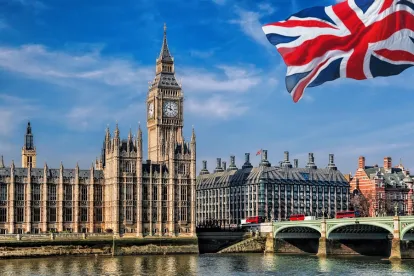On 26 June 2020 the Corporate Insolvency and Governance Act 2020 (the Act) came into force, introducing a number of temporary measures to assist companies facing financial difficulties as a consequence of COVID-19. These temporary provisions apply retroactively to cover the period commencing 1 March 2020 (26 March 2020 with respect to corporate governance provisions) and ending on 30 September 2020 (the Relevant Period). The Relevant Period can be reduced or extended by up to six months for each measure if determined necessary by the Secretary of State. These temporary measures do not apply to certain excluded companies, such as financial institutions and regulated entities.
Suspension of Wrongful Trading
The Act temporarily amends the existing wrongful trading provisions under sections 214 and 246ZB of the Insolvency Act 1986 by directing the Court to assume that a director is not responsible for any worsening of the financial position of the company or its creditors during the Relevant Period.
Directors can, however, still be found liable for wrongful trading during the Relevant Period, as the Act suspends neither liability for wrongful trading nor any liability to make a financial contribution in respect of any such liability, but rather sets limitations on the Court’s discretion to require a director to contribute. Where a director’s actions during the Relevant Period could amount to wrongful trading under the existing wrongful trading regime, the Court is directed to assume that the director is not responsible, meaning that in most cases the risk of a contribution order being made against the director in respect of the Relevant Period is minimal (and likely only to arise in situations where the director’s conduct is such that the Court is compelled to find the director liable — e.g. where the conduct may amount to fraudulent trading).
However, the amendment as enacted arguably does not give directors the respite they may have hoped for as their director duties, including the obligations to consider whether there is a reasonable prospect of avoiding insolvent liquidation or administration, continue, just with a reduced risk of a financial contribution liability in respect of wrongful trading. Therefore, where companies continue to trade through the COVID-19 pandemic, directors should be mindful to continue to consider their duties to the company, and in particular to creditors, at all times.
Statutory Demands and Winding-Up Petitions
The Act temporarily amends the rules governing statutory demands and winding-up proceedings for all companies to protect companies from hostile creditor action.
The Act provides that any statutory demands served during the Relevant Period will be void against a company, irrespective of whether COVID-19 has had a financial impact on the company.
The Act also amends the grounds on which creditors can present winding-up petitions during the Relevant Period. In summary, creditors are prevented from presenting a winding-up petition in respect of an unpaid statutory demand, a judgment debt or on the grounds of insolvency unless the creditor can demonstrate that the relevant ground for the petition would have arisen regardless of any impact of COVID-19 on the company. Ultimately, it is for the Court to determine whether COVID-19 has had a financial effect on the company but if the petitioning creditor has reasonable grounds for believing that COVID-19 has not had a financial effect on the company, or the company would have been insolvent even if COVID-19 had not had a financial effect on the company, the Court may still make a winding-up order.
In addition, any winding-up order made on or after 27 April 2020 but before the Act came into force on 26 June 2020 will be void where the order would not have been made had the Court applied the temporary rules under the Act.
Relaxation of Corporate Governance Requirements
The Act has also introduced certain temporary measures to give companies administrative breathing space and flexibility in light of COVID-19.
The Act temporarily extends the period in which public companies must file their annual accounts and reports with Companies House and also empowers the Secretary of State to temporarily grant additional Companies House filing deadline extensions.
The Act provides that for the period 26 March 2020 to 30 September 2020 (which can be shortened, or extended by three months at a time) certain flexibilities will apply to how shareholder meetings are called and held irrespective of statutory and company constitutional requirements. These measures are largely aimed at preventing the need for physical meetings that could spread COVID-19 (e.g., meetings need not be held at any particular place, votes can be cast by electronic means or any other means, and quorum requirements can be met without members needing to be physically together).
Over the coming weeks, Faegre Drinker Biddle & Reath LLP will be continuing this series of briefings to provide an overview of the key takeaways of some of the most significant provisions of the Act. In the meantime, if you have any queries, please contact a member of the London corporate restructuring team.






 />i
/>i

